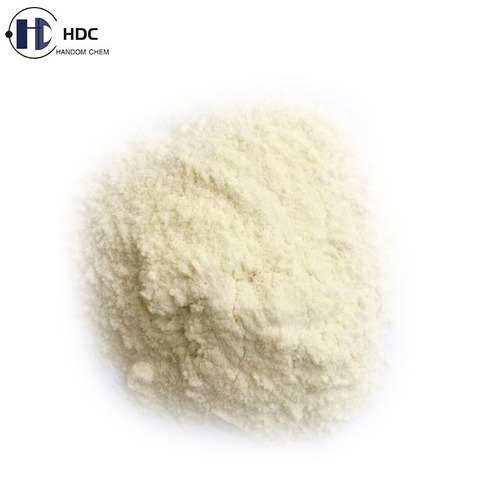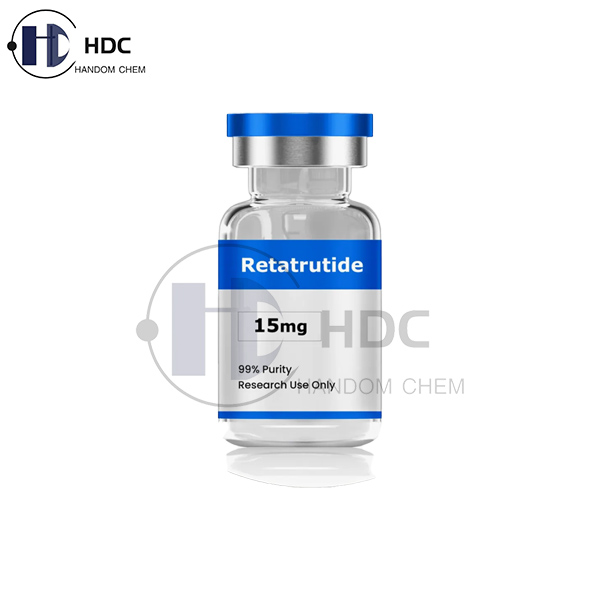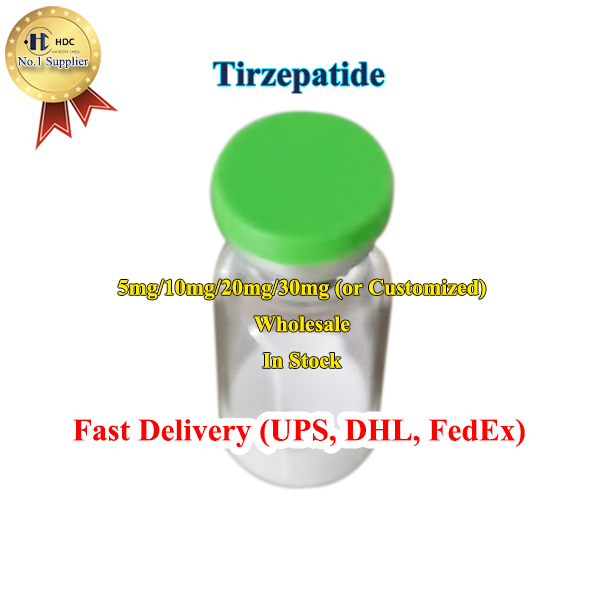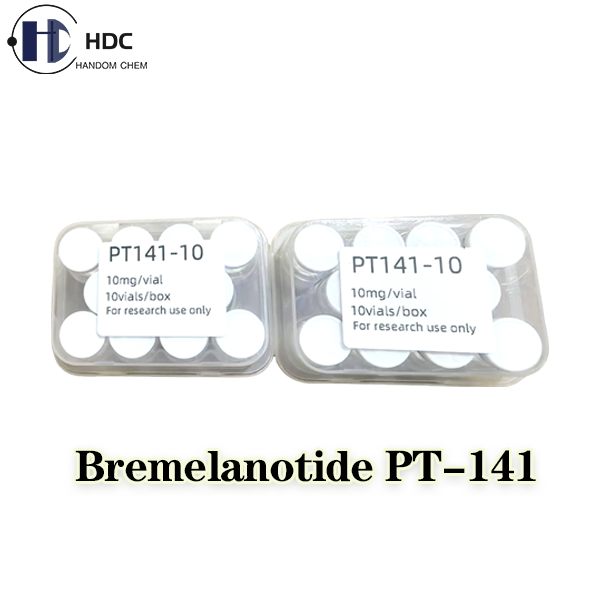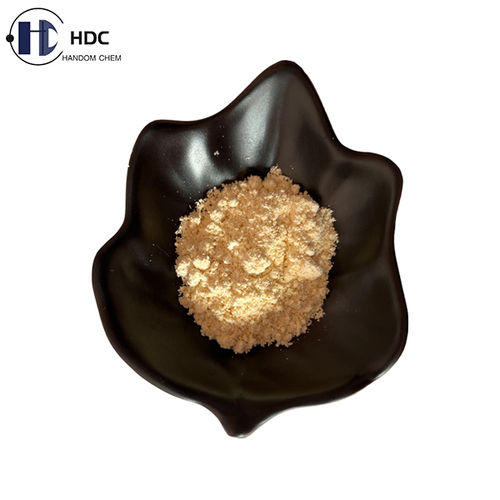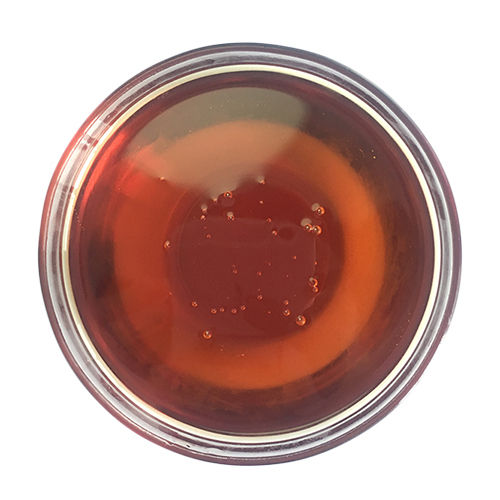Most Popular Products
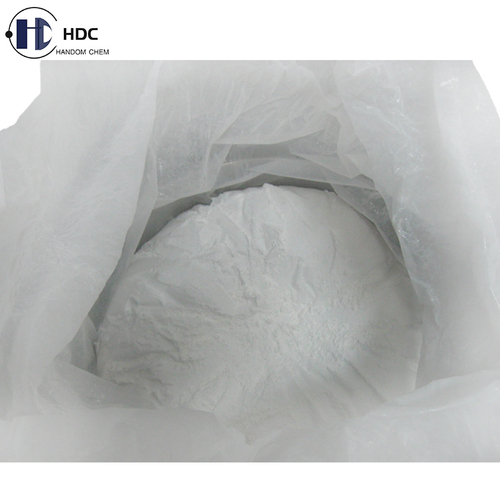
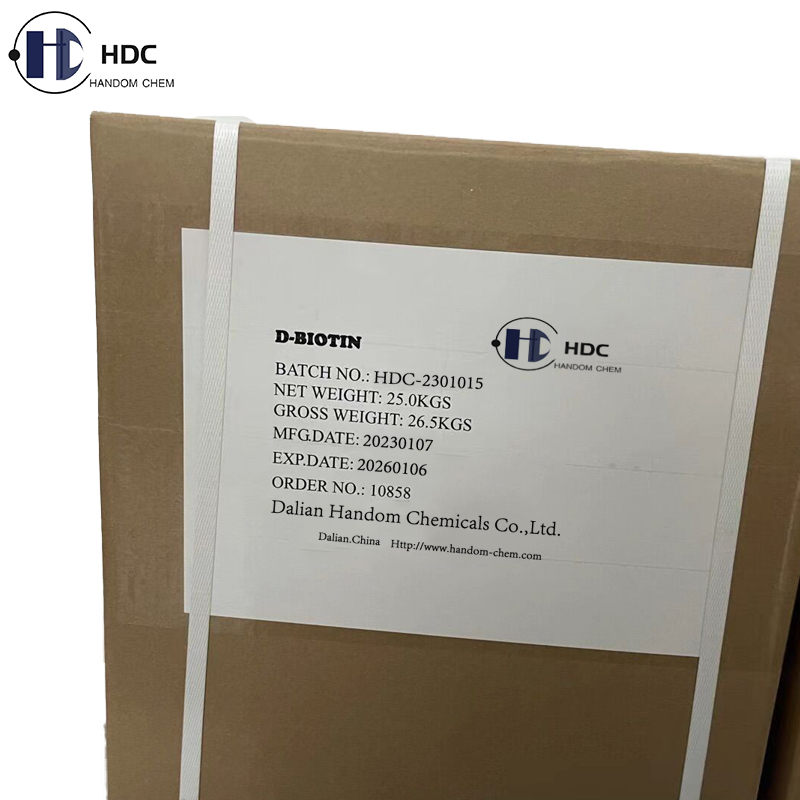
D-Biotin Vitamin H
200.00 USD ($)/Kilograms
Product Details:
- Appearance White crystalline powder
- Solubility Soluble in hot water, dimethyl sulfoxide, alcohol and benzene.
- Purity 97.5% ~ 102.0%
- Storage Room Temperature
- Shelf Life 36 Months
- Product Type Vitamins
- Smell Other
- Click to View more
X
D-Biotin Vitamin H Price And Quantity
- 200.00 USD ($)/Kilograms
- 1 Kilograms
D-Biotin Vitamin H Product Specifications
- Irregular
- 231-233(lit.)
- 200-399-3
- NO
- 1) Nutritional supplements: Biotin can be used in the food industry as a processing aid. This product has physiological functions such as preventing skin diseases and promoting lipid metabolism. 2) As a food fortifier: Biotin can be used in food for infants and young children, the recommended dosage is 0.1mg/kg~0.4mg/kg, and 0.02mg/kg~0.08mg/kg in beverages. 3) Biotin can be used for labeling proteins, antigens, antibodies, nucleic acids (DNA, RNA), etc. 4) As a feed additive: Biotin can also be used in poultry and sow feed, usually the mass fraction of the premix is 1%~2%.
- Other
- 58-85-5
- Food Grade
- 1. Participate In the Lipid Metabolism of The Body: Biotin is involved in the synthesis of fatty acids and is also an essential substance for the normal synthesis of long-chain unsaturated fatty acids and fatty acid metabolism. In addition, biotin is also related to the synthesis of acetylcholine and cholesterol metabolism. 2. Participate In the Body Protein and Nucleic Acid Metabolism: Biotin plays an important role in protein synthesis, amino acid deamination, purine synthesis, carbamoyl transfer, and leucine and tryptophan catabolism. It is also necessary for the transfer decarboxylation of a variety of amino acids. 3. Participate In the Carbohydrate Metabolism of The Body: Biotinidase is involved in catalyzing decarboxylation and carboxylation reactions and is an essential component of the tricarboxylic acid cycle. It participates in and affects the metabolic process of decarboxylation of pyruvate to oxaloacetate, conversion of malic acid to pyruvate, interconversion of succinic acid and propionic acid, and conversion of oxalosuccinic acid to n-ketoglutaric acid. 4. Participate In the Metabolism of Other Substances: Biotin is also used as a coenzyme component to participate in the metabolic processes of other nutrients such as methyl transfer reaction and sugar metabolism. At the same time, biotin is also related to the activation of lysozyme and the function of sebaceous glands; it is closely related to the metabolism of folic acid and pantothenic acid.
- 36 Months
- Vitamins
- Powder
- Other
- White crystalline powder
- Soluble in hot water, dimethyl sulfoxide, alcohol and benzene.
- C10H16N2O3S
- 97.5% ~ 102.0%
- Room Temperature
- D-Biotin
- food
- 2936290000
D-Biotin Vitamin H Trade Information
- Shanghai, Beijing or Dalian
- Paypal, Letter of Credit at Sight (Sight L/C), Telegraphic Transfer (T/T), Western Union
- 1000 Kilograms Per Month
- 10 Days
- Yes
- If order is confirmed we will reimburse the sample cost
- 1kg/aluminum foil bag; 10kg/carton or 20kg/carton with food grade PE bag inside.
- Asia, Australia, Central America, North America, South America, Eastern Europe, Western Europe, Middle East
- All India
- ISO
Product Description
Biotin, also known as vitamin H and coenzyme R, is a water-soluble vitamin and also belongs to the vitamin B family. It is a necessary substance for the synthesis of vitamin C and is indispensable for the normal metabolism of fat and protein. It is a necessary nutrient to maintain the natural growth, development and normal human body function and health of the human body
Tell us about your requirement

Price:
Quantity
Select Unit
- 50
- 100
- 200
- 250
- 500
- 1000+
Additional detail
Mobile number
Email
Other Products in 'Vitamins' category
 |
DALIAN HANDOM CHEMICALS CO.,LTD.
All Rights Reserved.(Terms of Use) Developed and Managed by Infocom Network Private Limited. |

